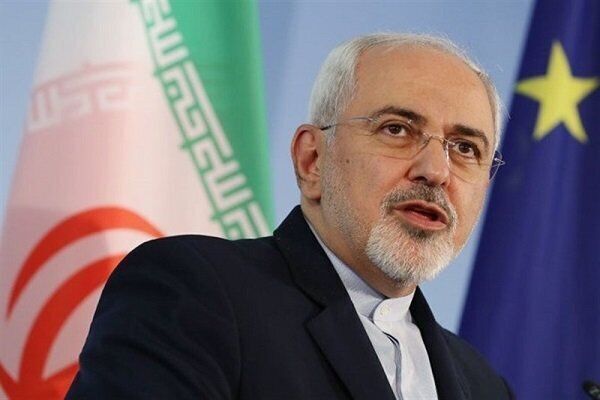Foreign Minister Mohammad Javad Zarif, at a news conference with the Iraqi foreign minister during a visit to Baghdad on May 26, said that the Islamic Republic of Iran is calling for a balanced relationship with its neighbors in the Persian Gulf, and therefore has proposed to sign a non-aggression pact to these countries.
While some Arab governments, such as Saudi Arabia and the United Arab Emirates, with obeying the US have consistently adopted a strategy of war and instability to advance their own interests, which naturally poses a serious challenge to achieving diplomatic solutions and can deteriorate the crisis in the region.
Much of the governments in the region and the world are calling for maintaining stability and security and preventing widespread insecurity in the Persian Gulf. The implementation of this proposal could open the door to negotiations and diplomacy in resolving the current disagreements between the countries of the region and to reduce the tension between Tehran and Washington.
Ardeshir Pashang, a Middle Eastern expert in an interview with the Islamic Republic News Agency (IRNA) said the non-aggression pact will relieve tensions in the region.
"This proposal, if implemented, will eliminate the concerns that may sometimes get unreal in the region, and in the current situation of the region it can, if executed, largely reduce the tensions that have arisen."
The analyst highlighted that the proposal was also given to the neighboring countries in the past and it makes security prevail in the region to eliminate misunderstandings about tensions in the region. Tensions in the international arena led by the United States and at the regional level led by Israel and Saudi Arabia, and such a proposal could be to some extent effective in reducing tensions in the psychological dimension.
The Middle East expert, meantime, said that Iran seriously and diplomatically wants to reduce the tensions in the region, and this can be perceived as formal diplomatic message, and the pact may make some changes to the policy of action, and it seems that the achievement of such an agreement, given the tensions and border disputes in the Middle East, hard to bear result.
He said Iran's declaration of non-aggression pact could be effective in reducing tensions in the Middle East, and this could be a serious and confidence-building step for the countries of the region that the Islamic Republic has never thought of as aggression against any country and it never starts any the war in the region.
** Saudi Arabia's response to non-aggression pact
The university professor stated that since Saudi Arabia's Crown Prince bin Salman has come into power in Saudi Arabia, the regional policy of Saudi Arabia has become an aggressive policy and sometimes a hasty policy.
Pashang said that Saudi aggression policy is not only about Iran, and that this hastiness can be seen in the case of Jamal Khashoggi and the developments in Yemen. Saudi Arabia regards Iran as one of its regional threats, and it is arranging a coalition of forces against the region.
He referred to the UAE's accompanying Saudi Arabia and went on to say, "In the past, in spite of the dispute over the trio islands of Iran, the UAE has been trading partner of our country and Iran is considered as one of the basic countries for economic growth of this country, but the Saudis are anxiously trying to bring the UAE closer to their coalition.
The Middle East expert stated that Saudi noted that on Iran's foreign policy it does not accept the words of the Foreign Minister, and their claim is that Iran's policies are determined by other institutions, and they are considered diplomatic compliments.
The professor on the challenges ahead in the implementation of the non-aggression pact expressed that the US and the Zionist regime policy whose vital interests in the region are met with tension, conflict, crisis and war between the countries of the region the most prominent of which is the massive arms sales and the continuation of military presence in the region, will obviously create barriers to the operation of the treaty.
9455**2050
Follow us on Twitter @IrnaEnglish



Your Comment